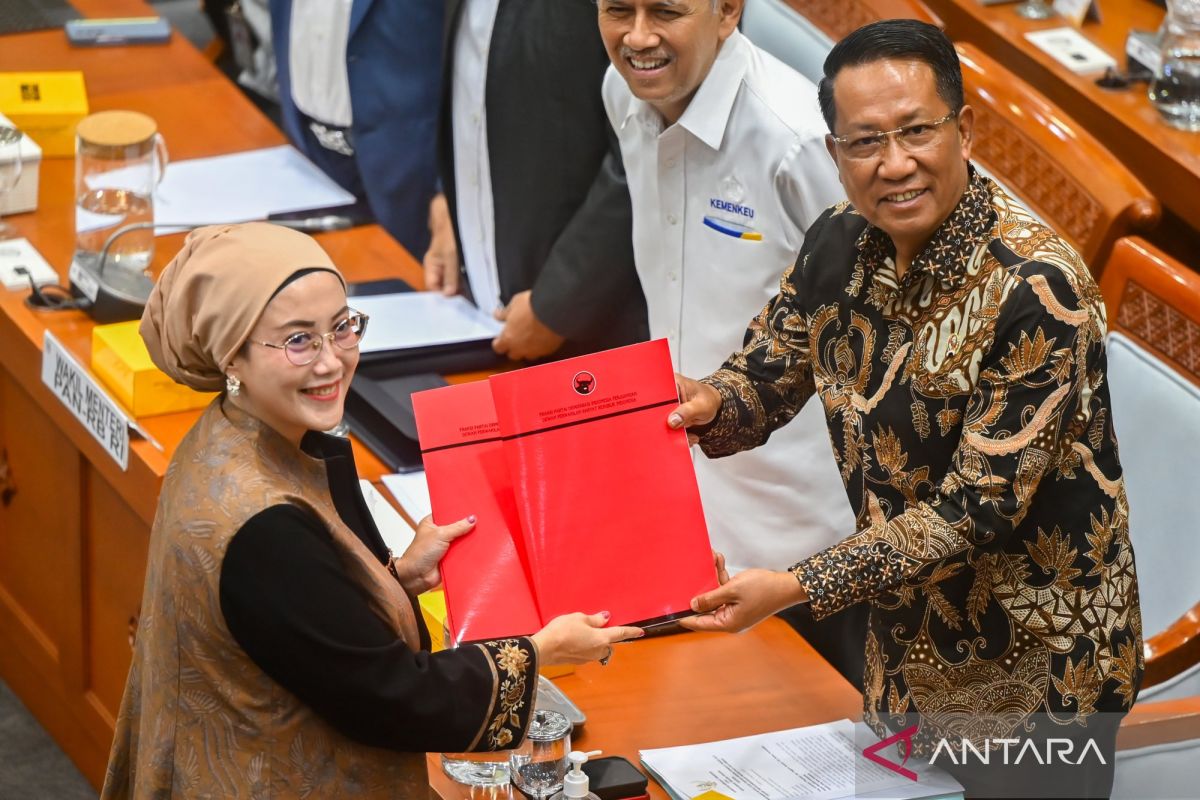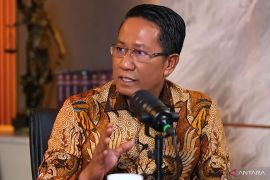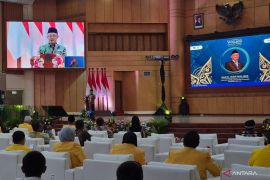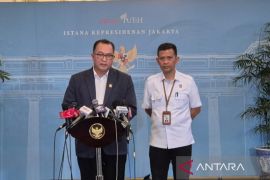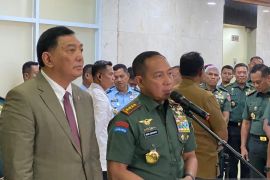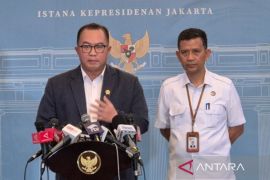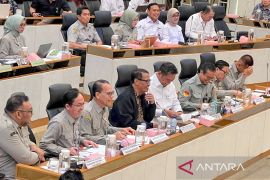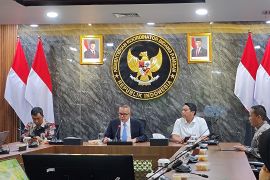Law Minister Supratman Andi Agtas presented the bill's key provisions during a plenary session at DPR, stating that the changes aim to improve services for pilgrims and strengthen state oversight.
“Allow us to convey several matters agreed upon in the discussion of this bill,” he said while delivering the President's final opinion on the Hajj and Umrah Bill at the DPR's 4th Plenary Meeting for the 2025-2026 session.
First, institutional strengthening by transforming the Hajj Organizing Agency (Badan Penyelenggara or BP) into a ministry responsible for managing the government’s hajj and umrah affairs and overseeing the implementation of these religious rites.
Second, the creation of an ecosystem for hajj and umrah through establishing working units, financial management under a public service agency model, and collaboration with relevant parties.
Third, the regulation of a separate hajj quota for hajj officers, distinct from Indonesia’s national hajj quota.
Additionally, the minister highlighted agreements on increasing the additional hajj quota, regulating the use of leftover quotas, and supervising special hajj arrangements for those holding non-quota hajj visas.
Further points include defining responsibilities for hajj guidance and health services for pilgrims, and establishing mechanisms for the transition following the transformation of the Hajj Organizing Agency into a ministry.
“Ninth, the use of the ministry’s information system in organizing hajj and umrah,” he added.
Supratman emphasized that the performance of hajj and umrah is a right of Indonesian Muslim citizens to worship, and also a state responsibility guaranteed by Indonesia's 1945 Constitution.
“The state’s responsibility to fulfill the right to perform hajj and umrah as human rights is realized by providing guidance, services, and protection for Indonesian citizens performing these rites so that they can be carried out safely, comfortably, orderly, and in accordance with sharia provisions,” he said.
He noted the need to improve and refine Law Number 8 of 2019 on the Implementation of Hajj, which has been amended several times, to ensure that hajj and umrah can be organized safely, comfortably, orderly, smoothly, and in accordance with sharia for the greatest benefit of pilgrims.
This is necessary because the current law has not fully accommodated community legal needs or developments in hajj and umrah policies from the Saudi Arabian government.
He also pointed out weaknesses in hajj and umrah implementation, such as Indonesia’s suboptimal utilization of the hajj quota and additional quota provided by Saudi Arabia.
Further challenges include insufficient guidance for current and future pilgrims, lack of protection and oversight for Indonesian pilgrims attending hajj through separate non-quota invitations from Saudi Arabia, and the absence of mechanisms for discussing changes in hajj implementation costs if costs rise.
“There is also no regulation on the hajj information system through the ministry’s information system, nor on independent travel arrangements for hajj and umrah,” he added.
In light of these issues, Supratman conveyed the President’s approval of the Hajj Bill to be enacted into law.
“The President agrees that the Draft Law on the Third Amendment to Law Number 8 of 2019 concerning the Implementation of Hajj and Umrah be passed into law,” he said.
The 4th Plenary Meeting of the DPR for the 2025-2026 session finally approved the bill, which includes the formation of a Ministry of Hajj and Umrah.
“Is the Draft Law on the Implementation of Hajj and Umrah approved to become law?” Deputy Speaker of the DPR Cucun Ahmad Syamsurizal asked at the parliamentary complex, Jakarta, Tuesday, with the attending members responding in agreement.
Translator: Melalusa, Azis Kurmala
Editor: Rahmad Nasution
Copyright © ANTARA 2025
